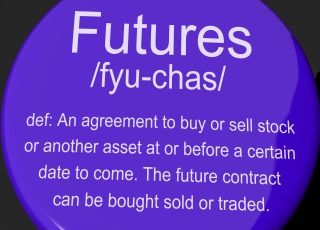Guide to futures markets

For many traders, the futures market holds huge appeal and is a primary or first area of interest. However, before diving right in, it's important to get a good idea of some of the basics. Here, find a quick guide to these markets and how you'll be able to get involved.
In this market, you're dealing with derivatives. That's because what you're buying and selling isn't something you're holding in your hand beside perhaps a piece of paper. It's a derived value being tracked and traded.
The original futures were often agricultural related. That includes everything from grains to livestock. However, the markets have evolved quite a bit since then, of course. Today, the most popular markets are precious metals, such as gold, silver and platinum, as well as industrial metals, stock indexes, bonds, and oil.
Key points to remember about futures
One of the key points to remember with these contracts is that it's all about timing. Anything you're buying is finite. That means that it has a set expiration date, at which point the contract comes to a close. Therefore, finding the right mix of appropriate upfront value, versus timing and when you're projecting something to occur to maximize your return, is essential.
Another aspect to consider is what your actual investment will be, and how that impacts the moves you're making. You do not pay in full for a contract when you obtain it. To initiate a trade, you post a margin based on the overall value of the contract.
From there, you could potentially quickly rake in a substantial amount of profit based on gains made, still without ever having had to invest full value. The reverse is true though, that if the contract goes down in value, quick losses could destroy your entire investment, and you'd face the dreaded margin call.
Main categories
Today, there are six main categories, with each category as a number of individual types of contracts. There's agriculture, with grains, livestock, dairy and forest, and then there's energy, with crude oil, coal, natural gas and heating oil.
Then you'll find equity indexes, including the S&P 500, NASDAQ 100, and foreign exchanges, as well as FX or forex markets, including Euro-Dollars, British Pounds-Dollars, Yen-Dollars, and Euro-Yean, for starters, and also interest rates, on treasures, money markets, and more. Last but not least you have the metals, as mentioned above, with precious metals including gold, platinum and silver, and base or industrial metals.
Of course, there's a great deal to learn and become familiar with for futures markets and trading. That includes the types of trades, including basis trades, spread trades and hedging, and how to succeed with each market.
Related articles
Trading Emini Futures
Trading Stock Futures Market, Why Bother?
Futures contract defined
What all stock index futures failure have in common
Futures trading software as essential tool for successful trading
Futures market and trend trading
Online futures trading that works
Day trading futures and how to become a master of your trading strategy?
Commodity futures: How they work
Forex futures trading
Futures trading tips for effectiveness and success
Trading futures and mistakes to avoid
Stock futures trading instead of stocks
Futures option trading without the high outlay of funds
Commodity futures trading is not a get-rich-quick scheme